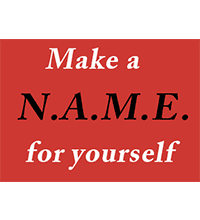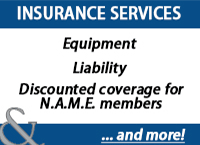By Stacy Zemon, Publisher & Chief Scribe
Many DJ business owners struggle with the seemingly overwhelming task of managing their website. There always seems to be so much to do, yet no time to do it all (something we know all too well).
This brief primer should help to highlight the key aspects of website management that will help you gain the most from your website. Follow these tips and your site will do better.
Nothing will guarantee that a website will be successful as there are simple too many different factors that impact web success - but as a general rule these ten tips will always lead to better performance.
Content
Content is key: All search engines scan a website’s content. The more relevant content you have on your mobile entertainment site, the more the search engines can scan. Your goal though, is to increase traffic to your site, so make sure that your provide interesting and informative information that is helpful for potential clients.
Freshness
Keep it current: Having lots of content is great – but if it is old then it´s not going to look like your website is much of a priority. The search engines actually track this. They monitor how frequently your site changes as they visit it for indexing. The more often it changes the better your rank in the freshness category. What constitutes change? pretty much anything - which is why adding a blog to your website usually produces such good results.
No Tricks
Don´t try to outsmart the search engines: Many design firms promise success through the use of tricks, backdoors, and special tactics designed to sneak a website into a top position rapidly. Something, of course, that the search engines are constantly battling to defeat. Why play the game?
Links
Links both in and out must be relevant: If you are going to link to someone and/or ask them to link to you, ask yourself “Is it relevant?” Any old link is not going to help you much because search engines look at who is linking to you. It is far better to have relevant links in various places throughout your website that specifically address the topic that relates to the page being linked.
Structure
Organize your website: Both the search engines and your web visitors prefer a website that is well structured. The search engines due to their very nature (being computer programs) must break down all websites into elements based on the structure of the pages. People, so frequently rushing to find the specific information they are looking for, rarely read through web pages but rather scan headings and bullied lists to find the detailed sections of interest. In both cases a well structured site will be far better received then one that is a mish-mosh of information haphazardly thrown together.
This is simple to do - but all too often missed. Make headings, use the correct coding tags for them, organize sections of content into groups, and use bold and bullied lists to present key points. Keep in mind when writing paragraphs of text that most humans will not read them unless they are specifically titled with a headline that matches what they are looking for.
Style
Looks matter: Ensure the style of your site makes it easy to read. Avoid things like black backgrounds with white text (inverse text is harder to read) and ALL CAPS.
Also check your website using a color blind test to ensure that visitors with the various types of color-blindness can still actually read your navigation.
Lastly, professional-looking images are key. Even a large multi-ops impressive warehouse of equipment will not look good if the photographs are amateurish.






